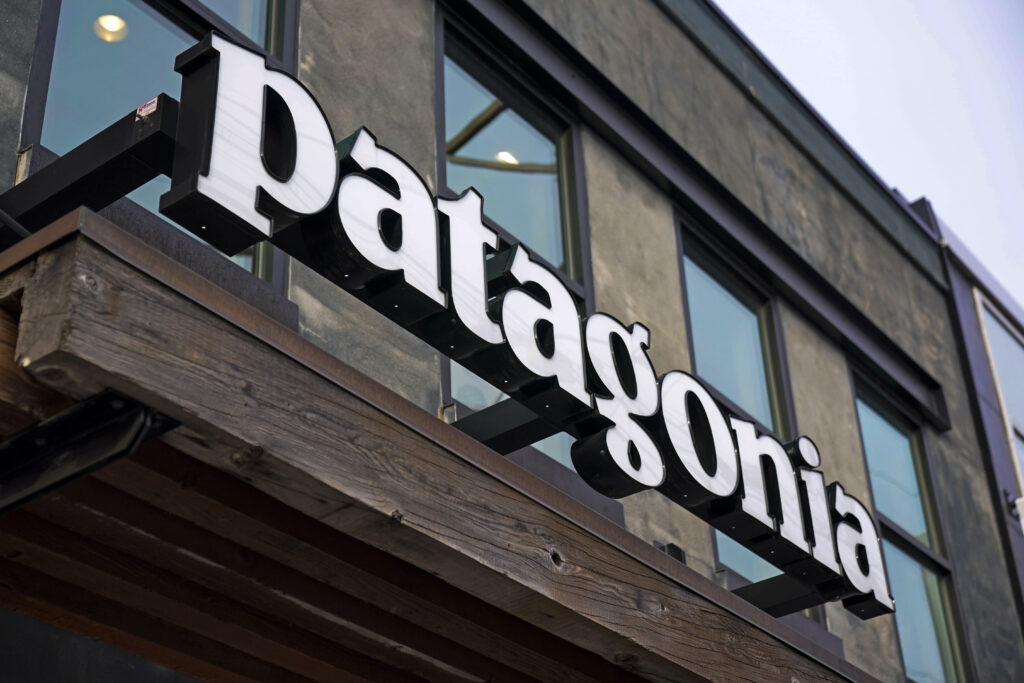
EXCLUSIVE — Patagonia, the outdoor apparel brand with offices across the world, granted tens of thousands of dollars to a group connected to Palestinian terrorism. Now the company says it has launched an internal review into the funding.
Through its tax-exempt private foundation in California, Patagonia has sent more than $139,000 since 2016 to Alliance for Global Justice, tax records show. That same progressive Arizona-based organization, a recent Washington Examiner investigation found, is linked to the Popular Front for the Liberation of Palestine terrorist group — a fact that prompted donors and payment processors such as PayPal to cut ties with AFGJ amid mounting scrutiny from Congress.
Patagonia’s funding of AFGJ is a window into how major corporations operating in the United States financially boost groups taking aim at the Jewish state of Israel, including AFGJ, which has said it sponsors 140 projects and reported holding $11 million in assets on its most recent tax forms filed with the IRS. One project under AFGJ is Samidoun, an Israeli-designated terrorist coalition that has shared staffers with the PFLP. AFGJ also fundraised in the past for the France-based Collectif Palestine Vaincra, a partner of the PFLP that, along with Samidoun, is protesting in support of Hamas after it killed 1,200 people last year in Israel on Oct. 7.
Patagonia’s 2023 grants to AFGJ, which totaled $30,000 combined, were to climate-focused projects under the charity working on “community cleanup around a defunct oil refinery site” and “building activism among Black TLGBQIA+ individuals through climate advocacy and community gardening,” Hans Cole, Patagonia’s vice president of environmental activism, said in a statement.
“Patagonia remains committed to rigorous stewardship of our philanthropic efforts and is evaluating continued funding of local efforts through AFGJ,” Cole told the Washington Examiner.
Patagonia, however, says in the company’s publicly available grantmaking policies that it does not support groups promoting “discrimination based on ethnicity, race, religion, color, sexual orientation,” and other factors. While groups may earmark donations to AFGJ for certain initiatives under the 501(c)(3) public charity, projects under AFGJ are all legally indistinct from the charity.

Terrorism financing analyst and attorney Marc Greendorfer said Patagonia has a clear responsibility under the law to not, even indirectly, fund terrorism.
“Patagonia now knows that it is part of the terror funding apparatus and must take swift action,” Greendorfer, president of Zachor Legal Institute, a think tank that requested the IRS investigate AFGJ’s tax-exempt status, told the Washington Examiner. “If Patagonia is truly committed to not sponsoring or otherwise supporting terror, it will carefully assess its relationship with AFGJ, an organization that has done nothing but increase its activities in support of terrorism since the Oct. 7 massacre.”
The funding also illustrates apparent transparency issues posed by fiscal sponsorship, a legal arrangement allowing charities such as AFGJ to manage projects under no obligation to file separate financial disclosures with the IRS.
Fiscal sponsorship makes it extremely difficult to trace tax-exempt donations and, in the eyes of watchdog groups, is a “dark money” loophole for wealthy philanthropists. The arrangement, Zachor Legal Institute argued in a memo last year shared with Congress, appears to allow Palestinian terrorist groups to fundraise in the U.S. through unofficial proxies. Republicans in Congress are working to identify Hamas-linked charities in the U.S. while eyeing further oversight into a handful of entities under fire for their anti-Israel activities after Oct. 7, including Students for Justice in Palestine.
On Patagonia’s tax forms filed with the IRS, the private foundation said its grants to AFGJ were “to support environmental projects.” Patagonia’s focus on environmentalism is no anomaly: With the stated aim of combating climate change, Patagonia underwent an unusual corporate restructuring in 2022, as its founder, Yvon Chouinard, and his family transferred their ownership of Patagonia to a trust and nonprofit group.
Since that time, a network of Patagonia-affiliated nonprofit organizations have doled out more than $71 million to prop up environmental causes, as well as Democratic-aligned groups, the New York Times reported. But the network, some conservatives say, appears to be operating unlawfully. In a February complaint sent to the Federal Election Commission, the right-leaning Americans for Public Trust watchdog group accused tax-exempt groups in the network, which hold the vast majority of Patagonia’s nonvoting shares, of illegally misrepresenting donations to Democratic political action committees.
AFGJ, the Patagonia-backed nonprofit organization, is advising donors on its website to mail checks to AFGJ’s office in Tucson, Arizona, a result of payment processors kicking the charity off their digital fundraising platforms. Recent corporate donors to AFGJ have included Pepsi, Lyft, and IAC Holdings, the parent group for the left-wing Daily Beast website.
CLICK HERE TO READ MORE FROM THE WASHINGTON EXAMINER
To Rep. Tim Burchett (R-TN), who sits on the House Foreign Affairs Committee, Patagonia is out of line in funding AFGJ.
“I would hope Americans would stop buying their products,” Burchett told the Washington Examiner.






